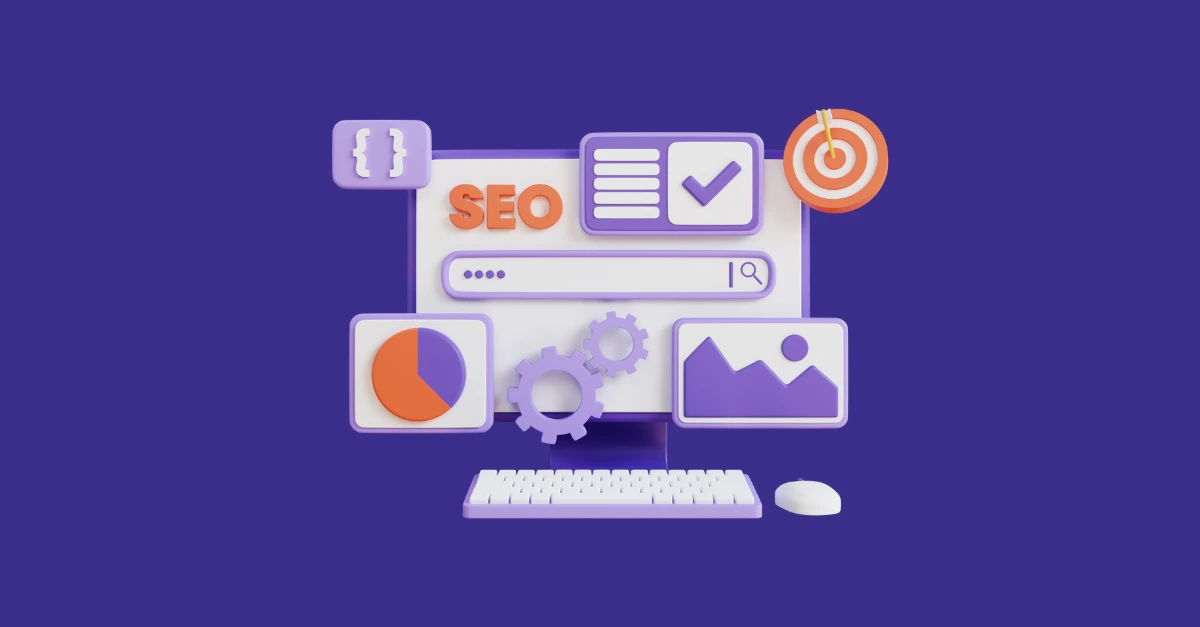The Importance of SEO and How to Optimize Your Website for Search Engines6 min read
- dhiraj
- 25/04/2023
- Search Engine Optimization.
- 0 Comments

In today’s digital age, having a website for your business is essential. However, simply having a website is not enough. Your website needs to be optimized for search engines in order to drive traffic and increase visibility online. This is where Search Engine Optimization (SEO) comes in. SEO is the practice of optimizing your website to rank higher in search engine results pages, thereby increasing your chances of being found by potential customers. In this article, we will explore the importance of SEO and provide tips on how to optimize your website for search engines. So, whether you’re a seasoned website owner or just starting out, read on to learn how SEO can benefit your business and how to get started with optimizing your website.
SEO is vital for businesses and website owners because it helps them reach their target audience. When someone searches for a product or service that your business offers, you want your website to appear at the top of the SERPs. This increases your visibility, drives traffic to your website, and ultimately leads to more conversions.
Table of Contents
ToggleTo make your website more visible to search engines, you can apply these tips.
Understand The Serach Engines
To optimize your website for search engines, you first need to understand how search engines work. Search engines use complex algorithms to crawl and index websites, and then rank them based on relevance and authority.
Keywords play a crucial role in SEO. Keyword research is the process of identifying the keywords and phrases that your target audience is searching for. You can then optimize your website’s content around these keywords to improve your ranking on the SERPs.
Backlinks are another essential component of SEO. A backlink is a link from another website to your website. Search engines view backlinks as a sign of authority and relevance. The more high-quality backlinks you have, the higher your website will rank on the SERPs.
Types Of SEO
There are four types of SEO, On-page, Off-page, technical Seo, and Local Seo. If you run a local business, you need to pay attention to local Seo. This is different from the other three types of Seo (on page, off page, and technical Seo). These are more common for blogs and websites. Local Seo helps you reach customers near you.
On-Page SEO
On-page SEO refers to the optimization of the content and HTML source code of your website’s individual pages. The key elements of on-page SEO include title tags, meta descriptions, header tags, and content.
Title tags are the titles of your web pages that appear on the SERPs. They should accurately describe the content of the page and include your primary keyword.
Meta descriptions are short summaries of your web pages that appear under the title tags on the SERPs. They should be compelling and include your primary keyword.
Header tags (H1, H2, H3, etc.) are used to structure your content and make it more readable. They also help search engines understand the context of your content.
High-quality content is crucial for on-page SEO. Your content should be informative, engaging, and include your primary and secondary keywords.
Off-Page SEO
Off-page SEO refers to the optimization of external factors that affect your website’s ranking on the SERPs. The key element of off-page SEO is backlinks.
To build high-quality backlinks, you can reach out to other websites in your industry and ask them to link to your website. You can also create shareable content that people will naturally link to.
Social media also plays a role in off-page SEO. Social media shares and engagement can help increase your website’s visibility and drive traffic to your site.
Technical SEO
Technical SEO refers to the optimization of the technical aspects of your website, such as site speed, mobile optimization, and site architecture.
Site speed is critical for SEO. A slow-loading website can negatively impact your ranking on the SERPs. To improve your site speed, you can compress images, minify CSS and JavaScript, and use a content delivery network (CDN).
Mobile optimization is also crucial for SEO. With more people using mobile devices to browse the internet, search engines prioritize mobile-friendly websites. To optimize your website for mobile, use responsive design and optimize images and videos for mobile devices.
Site architecture refers to the organization of your website’s pages and content. Your website should be structured in a logical and easy-to-navigate way.
Local SEO
Local SEO is a type of SEO that focuses on optimizing a website for local search queries. It is especially important for businesses with a physical location, such as retail stores, restaurants, and service providers. Here are the different elements of local SEO and tips for optimizing them:
1. Google My Business: Google My Business is a free tool that allows businesses to manage their online presence across Google, including search and maps. To optimize your Google My Business profile, make sure that all of your business information is complete and accurate, including your address, phone number, website, and business hours. You should also add photos of your business and respond to customer reviews.
2. Local keywords: Use local keywords in your website content, such as the name of your city or town, to help Google understand that your business is relevant to local search queries. For example, if you run a bakery in New York City, you might use keywords like “New York City bakery” or “best bakery in NYC.”
3. Local backlinks: Getting links from other local websites can help boost your website’s authority and relevance for local search queries. You can reach out to local directories, local business associations, and other local websites to request a link to your website.
Measuring and Analyzing SEO Success
Measuring and analyzing SEO success is important for understanding how your website is performing in search engines and identifying areas for improvement. Here are some metrics to track and tools to use for measuring and analyzing SEO success:
1. Organic traffic: Organic traffic refers to the number of visitors who come to your website through search engine results pages (SERPs). You can track organic traffic using tools like Google Analytics.
2. Keyword rankings: Keyword rankings refer to where your website ranks for specific search terms in search engine results pages. You can track keyword rankings using tools like SEMrush or Ahrefs.
3. Backlinks: Backlinks refer to the number of other websites that link to your website. You can track backlinks using tools like Ahrefs or Majestic.
4. Google Analytics: Google Analytics is a free tool that allows you to track website traffic and behavior. You can use it to track organic traffic, user behavior, and other important metrics.
5. Google Search Console: Google Search Console is a free tool that allows you to monitor your website’s performance in Google search results. You can use it to track keyword rankings, monitor backlinks, and identify technical issues.
Conclusion
In conclusion, SEO is an important aspect of online marketing that can help businesses and website owners increase their online visibility and attract more organic traffic to their website. By understanding how search engines work and optimizing your website for on-page, off-page, technical, and local SEO, you can improve your website’s rankings in search engine results pages and drive more traffic to your website. You can rely on our best SEO services in Bangalore and Hyderabad Remember to measure and analyze your SEO success using tools like Google Analytics and Google Search Console to identify areas for improvement and make data-driven decisions.
Related Posts

- Soni Kumari
- 21/09/2024
Search engine optimization – Key to handle the web traffic
Nowadays, search engine optimization is done to handle the visibility of websites when you sear ..

- Soni Kumari
- 22/10/2024
Top WordPress Website Development Company in Bangalore: Elevate Your Online Presence
Establishing a strong online presence is essential for businesses in the present digital world. ..

- Soni Kumari
- 16/11/2024
Web Development Company in JP Nagar, Bangalore: Elevate Your Online Presence
Any firm in the modern digital age needs to have a strong online presence. You’ve come to ..


